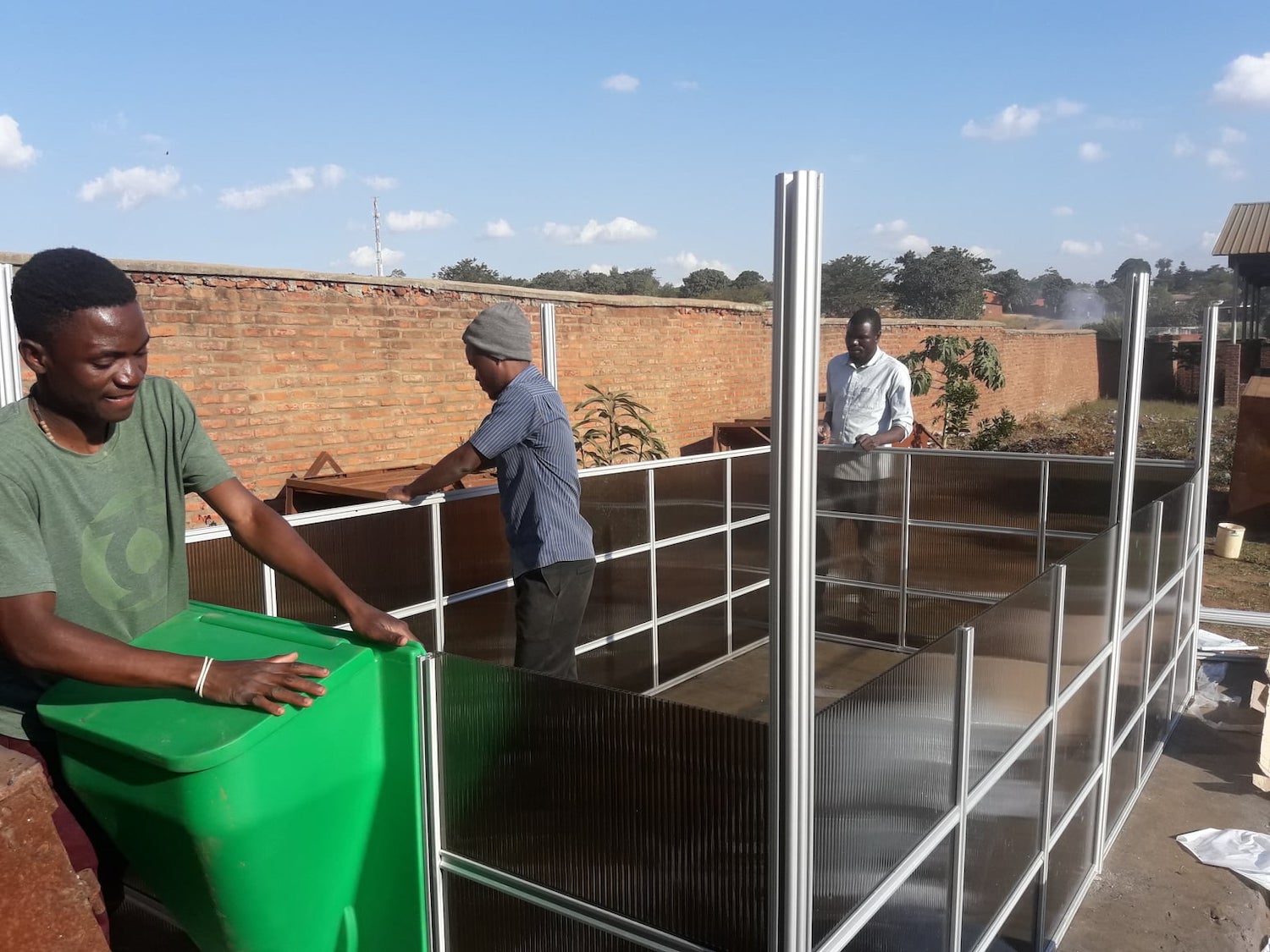Life in rural Malawi is pretty low-tech. Essential functions, like cooking and heating the home, still depend on firewood and charcoal – with significant social and environmental impact.
Clement Kandodo remembers the burden that his mother and other community women endured because of dependency on wood for the household. They spent hours walking long distances to collect wood and burned it for cooking over indoor fires, exposing themselves and their children to poor quality, smoke-filled air.
“I developed a desire to end this burden at an early age,” Kandodo tells AFN.
Three years ago, Kandodo launched EcoGen. The company distributes small-scale biogas technologies to convert agricultural waste into a sustainable source of fuel and fertilizer for Malawi’s farming-dependent rural households. Its mission is to provide rural populations with safe, affordable, and efficient cooking and heating fuels.
Its bigger goal is to combat food insecurity, poverty, and climate change.
That may sound lofty, but it’s also necessary. Around 80% of Malawians depend on farming to earn a living, yet over half of the country’s 18.6 million people live below the poverty line. Kandodo observes that the agriculture sector is highly vulnerable to external shocks, particularly climate change. Government efforts to boost agriculture, including a farm inputs subsidy program, have largely failed to have the desired impact, he adds.
What’s more, rural Malawians’ dependence on charcoal and firewood has contributed to declining forest cover. And on the issue of indoor air pollution, the World Health Organization estimates that 4.3 million deaths per year worldwide are attributed to diseases associated with solid-fuel-based cooking and heating.
“In biogas, we saw an opportunity to bring better technologies that would be of greater benefit to farmers, including [supporting] climate adaptation,” says Kandodo.
International partnership
Biogas technology, while somewhat prevalent in Africa’s larger markets, is fairly new to Malawi. Before launching EcoGen, Kandodo found that the technologies available locally were costly and burdensome for users to install and maintain. Also, a dearth of training meant that households lacked knowledge on how to use the technology effectively.
EcoGen partners with Mexico-based biogas system manufacturer Sistema Bio to offer a range of modular, affordable, pay-as-you-go biodigesters and accessories designed specifically for smallholder farmers. These systems convert farm waste into both biogas for household use, and fertilizer. They do not require any construction, can be installed within a day, and are easy to operate and maintain, Kandodo says.
EcoGen has sold about 80 units, impacting about 3,000 people in rural, ag-based communities.
Gaining traction with a technology that was unfamiliar locally wasn’t an easy feat. Farmers who had already tried biogas often had poor experiences and received little support from the public and non-governmental organizations that introduced the technology.
EcoGen is combatting skepticism in several ways. First, it understands that affordability is important. Its systems cost about $850 – too much for most farmers to pay out of pocket, so the startup offers a flexible payment option, allowing users to pay in installments over a period of two years. It also offers asset financing.
Second, product quality is critical. EcoGen provides a 10-year warranty for its systems. (The systems are built to last 20 years or more.)
Growth path
EcoGen hopes to scale up its deployment to 10,000 biogas systems, reaching 200,000 people, by 2026. Part of its growth strategy includes expansion to Zimbabwe.
It has yet to close a seed funding round. But its potential for impact at the intersection of energy, agriculture, water management, health, rural poverty, and climate change has won the company a number of awards.
Most recently, EcoGen was the recipient of the UN-supported SEED Award for Entrepreneurship in Sustainable Development, clinching $15,000 as a winner of the Climate Adaptation category. It has also won $20,000 from the African Development Bank’s AfricavsVirus Challenge and $40,000 from the Climate Change Research and Innovations Awards, organized by the Malawi government.
Kandodo says that perhaps more than EcoGen’s potential health and gender impacts, the awards “show the world is appreciating our efforts in deploying a technology that helps reduce greenhouse gases emissions.”





